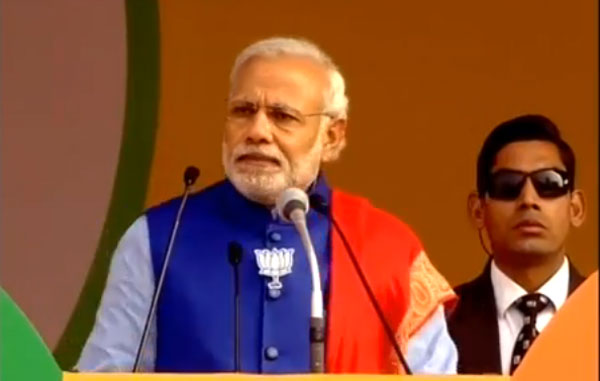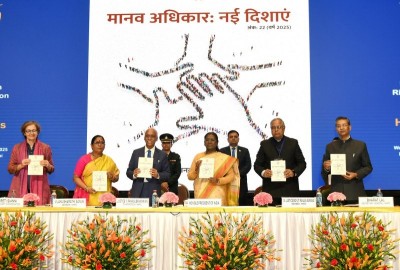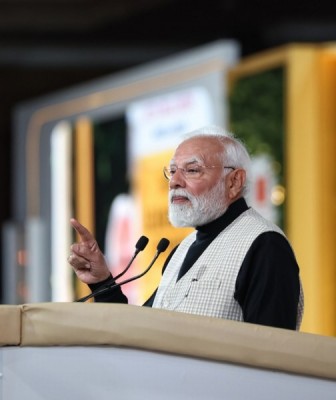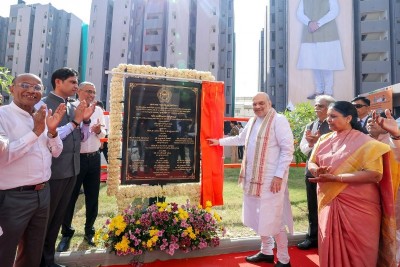
Modi sounds alert to authorities following quakes
Initial reports say four people have been killed in Chautara town of Nepal.
An earthquake of magnitude 7.3 first hit Nepal at around 12.35 pm. A few minutes later, a milder quake measuring 6.9 hit the Himalayan nation that is still recovering from a massive quake on April 25 that killed over 8,000 people.
Two smaller quakes of 5.4 and 4.8 magnitude followed within a span of a little over an hour.
In India, the tremors were felt in Delhi, Bihar, Bengal, Gujarat, Sikkim and Himachal. People of Chennai in Tamil Nadu also felt the quake.
Prime Minister Narendra Modi called a meeting and directed authorities to be on alert for rescue and relief operations.
In Delhi, buildings trembled for more than a minute and people ran into the streets. Metro services were halted for some time.
The underground railway services were suspended also in Kolkata.
Home Minister Rajnath Singh warned against panic. "Whatever help Nepal needs, we will provide it," he told reporters.
The home minister said the National Disaster Response Force or NDRF, which was deeply involved in the relief and evacuation efforts in earthquake hit Nepal, had been alerted.
"Please do not panic and maintain calm. Earthquake situation is being closely monitored and officials are already in the field," Delhi Chief Minister Arvind Kejriwal said.
According to US Geological Survey, seismicity in the Himalaya dominantly results from the continental collision of the India and Eurasia plates, which are converging at a relative rate of 40-50 mm/yr.
Northward underthrusting of India beneath Eurasia generates numerous earthquakes and consequently makes this area one of the most seismically hazardous regions on Earth. The surface expression of the plate boundary is marked by the foothills of the north-south trending Sulaiman Range in the west, the Indo-Burmese Arc in the east and the east-west trending Himalaya Front in the north of India.
Support Our Journalism
We cannot do without you.. your contribution supports unbiased journalism
IBNS is not driven by any ism- not wokeism, not racism, not skewed secularism, not hyper right-wing or left liberal ideals, nor by any hardline religious beliefs or hyper nationalism. We want to serve you good old objective news, as they are. We do not judge or preach. We let people decide for themselves. We only try to present factual and well-sourced news.







